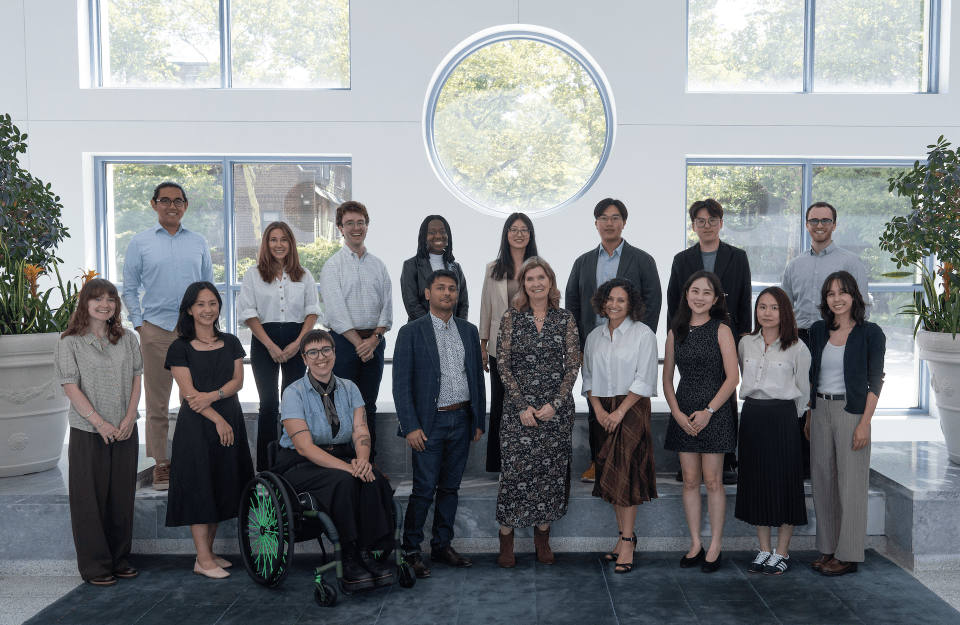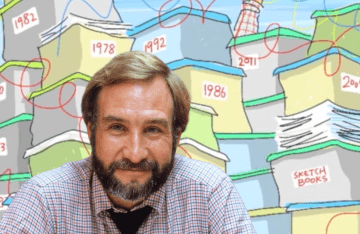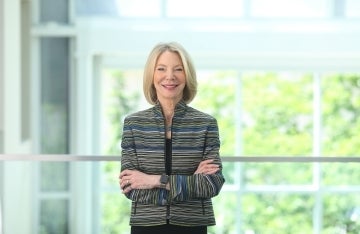The Annenberg School Welcomes Sixteen New Ph.D. Students To Its 2025 Cohort
The students in the School's newest cohort of doctoral students study topics ranging from the creator economy to global news production.

The Annenberg School for Communication proudly welcomed its newest cohort of doctoral students this week. The 16 students in our 2025 cohort bring a wide variety of research interests and experiences to the program.
Many of our new students research our evolving digital landscape. Harry Hudome’s research explores the impact of social platforms and the creator economy on the built environment, considering how spaces are being transformed to be more aesthetically appealing (“Instagrammable”) and conducive to content creation. Talia Fiester examines the post‑#MeToo digital culture and mediated feminisms, taking an interest in public engagement with victimhood and believability online. Yiheng Zhang studies how violent media and platform design influence youth behavior and create patterns of social media addiction, cyberbullying, and fear of missing out. Rehan Mirza’s research focuses on how digital platform design influences belief formation, network interactions, and prosocial behavior.
Three of our new students are pursuing a joint doctoral degree in Communication and Political Science. Wei (David) Wang studies how perceptions of what others think shape people’s political attitudes and behavior. Nolan Siegel uses machine learning, observational data analysis, and experiments to study American politics and political communication, focusing on crime-focused media reporting, public opinion, and vote choice. Christine Huang is interested in the interplay of ideology and the media environment in the formation of public opinion around foreign countries.
Both Naana Obeng-Marnu and Yuzhe (Julian) Lei study mass media and media diets. Obeng-Marnu uses computational and creative practices to trace the effects of media diets on interpersonal and political discourse, while Lei examines how social identities intersect with political identity to shape attitudes and behaviors, and how digital media environments mediate these identity-related dynamics.
Many of our new students specialize in health and social communication. Cecilia Rabayda is interested in developing communication interventions to address health and care disparities, while Eury Hong leverages AI-driven, multimodal communication interventions to counter health misinformation and improve health outcomes. Yifei Lu investigates the mechanisms underlying meaningful social connections, with a particular focus on how individual and contextual differences influence interaction processes and outcomes.
Many members of our new cohort are interested in media-making. Yuan Xu explores how media and everyday resistance shape activism and identity, examining how communities build connections and narrate their stories. Anna Murphy researches global news production, with a primary focus on the Middle East and North Africa region and agency and inequality in modern media practices. Gabriella Bellot studies global media history and institutions, with a particular interest in cultural memory in Latin American visual media.
For the first time, Annenberg has a joint doctoral student with the Department of History and Sociology of Science: Katelyn Friedline, who studies the social and economic histories of technology surrounding medical recordkeeping.
Together, their scholarship will enrich our classrooms, deepen our research, and invigorate our shared discourse.



